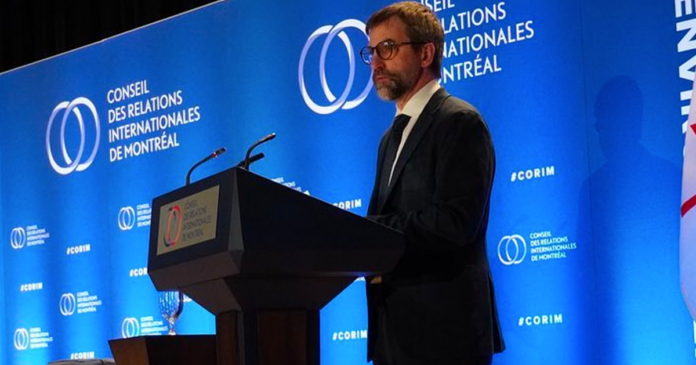Canadian Environment Minister Steven Guilbeault has been warned not to take a “condescending tone” with members of the China Council for International Cooperation on Environment and Development as he visits the country for an upcoming climate conference.
Guilbeault, who is vice-chair of the council, is set to attend its annual meeting. His visit to Beijing will be the first by a Canadian minister in four years.
The Global Times, a propaganda outlet of the Chinese Communist Party (CCP) announced that Guilbault’s visit would “ease the strained China-Canada relations.”
The publication went on to quote a source that said if Guilbeault “demands” China become more focused on reducing its carbon emissions “in a condescending tone” that it would be “counterproductive.”
One China expert said it’s clear China is already trying to take charge.
“Even before the meeting starts, they’re giving us our marching orders,” said Margaret McCuaig-Johnston, who serves as a board member with the China Strategic Risks Institute.
“Don’t push the envelope. Don’t push China to do more. And frankly, the minister (Guilbeault) himself said he was going to have an open and frank conversation. Good for him.”
When Prime Minister Justin Trudeau was first elected in 2015, many hoped it would improve the relationship between the two nations regarding trade.
McCuaig-Johnston believes that climate change is an area where both Canada and China could potentially find some common ground. “That makes for a potentially constructive discussion with them,” said McCuaig-Johnston.
The vice-chair position on the China Council for International Cooperation on Environment and Development has been held by both Liberal and Conservative ministers over the years.
Guilbeault said he plans to discuss methane emissions at this year’s meeting as well as the global renewable energy target. Guilbeault has not committed to raising China’s election interference or human rights violations against Uyghurs.
“We will confront them when we have to confront them,” said Guilbeault in an interview with CBC. “But we will also co-operate on issues like climate change and nature.”
McCuaig-Johnston said that the message from the Global Times is clear that pressing China to reduce its carbon emissions is unlikely, despite China being the world’s largest emitter, accounting for one-third of global emissions.
“They’re holding out that carrot that if you are sufficiently deferential and polite, and if you say everything we want you to say, and don’t challenge us on climate change and the environment, then maybe, just maybe, other elements of the Canada-China relationship will be improved,” said McCuaig-Johnston.
Shortly after Trudeau was elected, the Liberals were attempting to craft a free trade deal and extradition treaty with China, but the relationship began to sour following the 2018 arrest of Huawei executive Meng Wanzhou in 2018. Meng was wanted for bank fraud in the United States.
Several days later, two Canadians, Michael Spavor and Michael Kovrig, were arrested in China in what many believe was an act of retaliation. The two men remained imprisoned until they were eventually returned to Canada in September 2021.
More recently, China’s suspected interference in Canada’s 2019 and 2021 elections has added to the existing tensions, Chinese diplomats in Canada have denied any involvement in election interference.
Canada expelled Zhao Wei, a Chinese diplomat, in May after he’d been accused of intimidating a Conservative MP. In response, China expelled Canadian diplomat Jennifer Lynn Lalonde.
